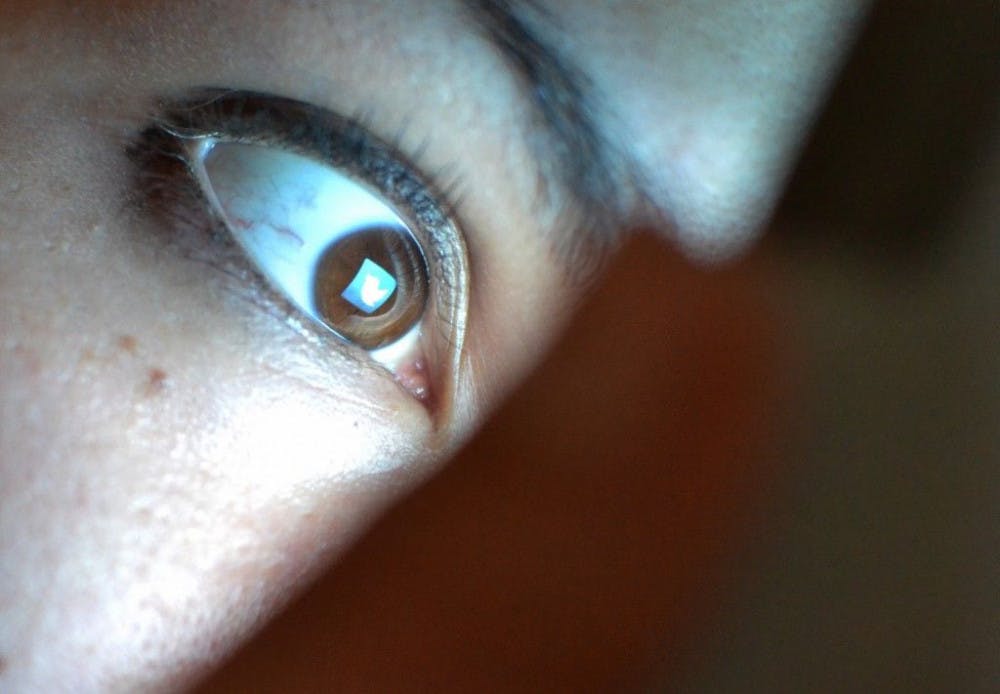Lauren Cedotal means to go to sleep, but the next thing she knows she has spent “who knows how long” in bed checking social media on her cell phone at bedtime and during the night.
“I constantly check my phone before I go to bed,” Cedotal, a sophomore nursing major at the University of Memphis, said. She said that the era of the smartphone has also increased her cell phone usage in the middle of the night.
A new study has shown that the handy-dandy cell phone can be a prime suspect of sleep deprivation among young people.
According to a recent survey by Lookout, Inc., 54 percent of Americans check their phones while they are in bed, either before they go to sleep or upon waking in the middle of the night.
“Before the iPhone, I would text my friends all night. Now that smartphones have become popular, I can check social media, the web and my text messages all on one little device,” Cedotal said.
According to sleep researchers, 75 percent of young people fall asleep with their phones in reach. Cell phones – along with TVs, computers and other electronic devices – have been proven to disrupt people’s sleep.
A recent study found that college students are twice as likely to be sleep deprived as the general population and some suffer from academic and social stress. One of the main causes of stress is a lack of sleep.
“Once I put my phone down, I take another 15 to 20 minutes to actually go to sleep.”
A lack of sleep is also not ideal for one’s physical health. Sleep disorders and chronic sleep loss can increase the risk of heart attacks, heart disease, high blood pressure, diabetes and strokes.
Atsuhito Saito, a senior criminal justice, Japanese and Spanish major at the U of M, said he stays up for hours before realizing how long he has been up.
“With my access to Facebook, the Internet and other different social media and websites, I catch myself staying up late all the time,” Saito said. “At one minute, I’m looking through Facebook; next thing I know, I’ve been up for two to three hours while also having to wake up for an early class the next morning.”
Some students said that staying up so late on their cell phones kept them from going back to sleep.
“Once I put my phone down, I take another 15 to 20 minutes to actually go to sleep,” Saito said. “Which is different from when I was ready for bed before I checked my phone.”
Many students use their phones as an alarm, which Cedotal says gives her all the more reason to check her phone one last time.
“It’s a strong temptation to turn down,” Cedotal said. “You get ready to go to bed, go to turn on your alarm on your phone, and see that you have a notification on Twitter or a text message from a friend. Next thing you know, you’re staying up for who knows how long checking everything before going to bed.”
Sleep researchers have found that using technology in the bedroom is not the only problem. Merely sleeping in the room with cellphones can cause poor quality sleep and sleep disturbances because of the pinging sound and vibrations that signal an incoming message. Researchers on sleep disorders recommend that people plug in their cell phones for their overnight charge anywhere but in a bedroom, and if you must have it in the bedroom, make sure all the alerts are turned off.
Sleep researchers at Dalhousie University in Canada found that one of the biggest culprits in disrupted and inadequate sleep is technology. In additional to phones, having televisions and games consoles in the bedroom is also a problem. It teaches the brain to see the room as an entertainment area rather than a place of sleep and rest, Dalhousie researchers found.
Cell phones can disrupt sleep, experts say. Photo by Jonathan A Capriel




